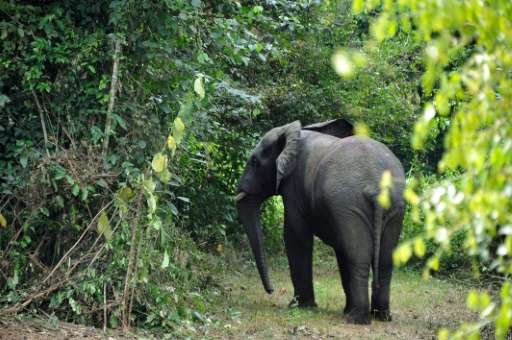Elephants live in the Mount Peko national park in the Ivory Coast's west, a 34,000 hectare (131 square mile) area threatened by rampant deforestation driven by the country's booming cocoa industry
Ivory Coast has deployed teams of rangers to protect the country's last surviving dwarf elephants from extinction, the head of the national park service told AFP Tuesday.
The elephants live in the Mount Peko national park in the country's west, a 34,000 hectare (131 square mile) area threatened by rampant deforestation driven by the country's booming cocoa industry.
Up to 70 percent of the park is occupied by cocoa farmers from neighbouring Burkina Faso, according to the head of the country's office for parks and reserves (OIPR) colonel Adama Tondossama, who accused them of destroying the area's flora and fauna to make way for their crops.
"These incursions for agricultural reasons have caused the forest canopy to almost disappear and have threatened endemic species like the dwarf elephant," said Tondossama.
The park, a rugged area with rich biodiversity is located alongside the Ivory Coast's cocoa producing region. The country is the world's largest cocoa exporter.
An armed group headed by Amade Oueremi occupied the Mount Peko forest for years and was arrested there in May 2013 by Ivorian authorities.
He is suspected of committing a range of crimes during the post-election violence that rocked the country in 2010-2011.
The OIPR has now begun a major operation to "liberate" the Mount Peko park, prohibiting any new clearings with dozens of forest rangers, trained in 2015, deployed to the region to enforce the ban.
"If the Mount Peko park disappears, agricultural production will fall in two years because the park creates a micro-climate that generates strong rainfall," said Tondossama.
The park is also significant for the Krahn people, a local tribe who use wood from the forest to make traditional masks.
Ivory Coast's west has seen sporadic fighting even since the end of the 2010-2011 conflict which claimed as many as 3,000 lives.
© 2016 AFP
























